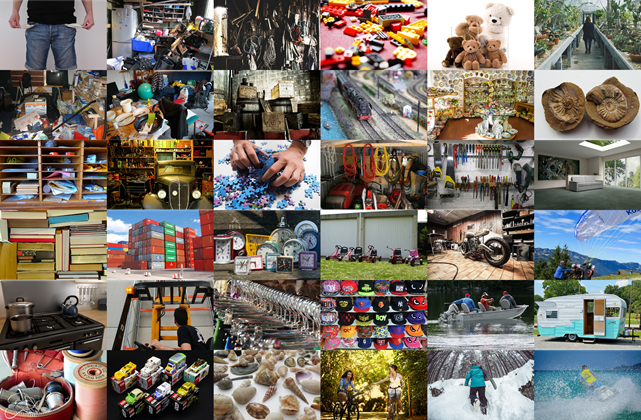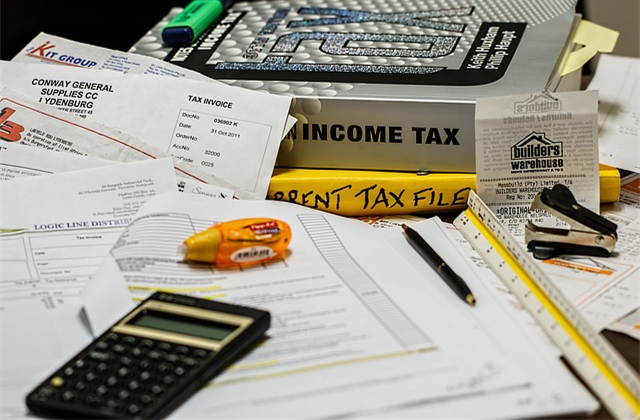In hindsight, many good ideas can seem obvious. Putting wheels on a suitcase. Adding a camera to a phone. Realising such things before they happen, and developing a market for them, can be the difference between not only realising a good idea but making it a great idea. The rise of the sharing economy, in many regards, now seems obvious in hindsight. Frequently it combines technologies both high and low. Taking things, which in the past were perhaps provided by individuals each operating as small businesses, and then using the power of technology to simultaneously meet the needs of people and provide a readily discoverable and searchable marketplace for this. Platforms such as Uber and other ridesharing apps have enabled people to realise that they can use or provide a service with regular cars. In conjunction with the realisation that a car can be put to use earning money rather ...
Read More »Economics
Australia Post Raises Stamp Price to $1, Leaving Customers Unhappy
As of today, 4 January 2016, the cost of a standard postage stamp in Australia will be $1. Australia Post has raised the price of stamps from $0.70 to $1, amidst a significant attempt at restructuring the business following to $222 million dollar loss in the 2015 financial year. The $0.30 jump in stamp price, represents a near 43 percent increase in cost. Leaving many of Australia Post’s customers less than happy about the situation. Under the new stamp pricing structure, to post a standard letter (weighing under 250 grams) domestically will cost $1. A single Christmas stamp will cost $0.65. Concession stamps are available for $0.60 per stamp where a valid MyPost Concession account is held. Pricing of stamps for international postage is subject to the county and letter type. Typical strategies where a business is struggling financially, are often a combination of cutting costs and product prices, as ...
Read More »The Superannuation System is Not Sexist
As was recently reported on the Australian television channel SBS, on 7 July by The Feed, the superannuation system in Australia is apparently biased against women. Drawing upon the Australian Government Productivity Commission’s research paper for Superannuation Policy for Post-Retirement, the television show states that “there is a massive gap in super funds between men and women”. With the show citing estimates of average retirement payouts from superannuation for men were around $250,000 and for women around $150,000. Whilst The Feed tends to be a rather irreverent look at news and currents events – and is best treated and viewed as such – the suggestion that the difference in superannuation retirement payouts between males and females is because super is a “dude’s system” is utterly false. Even acknowledging and allowing for the tongue-in-cheek nature of The Feed, this line of specious reasoning that somehow the superannuation system unfairly favours males ...
Read More »Tamponomics and Taxing Tampons with GST
Tamponomics, one has to marvel at the ability of the word “economics” to absorb whatever is thrown at the dismal science. This time around, it’s the debate about whether GST should apply to tampons in Australia. So much so, that it has caused a minor rift between Treasurer Joe Hockey and Prime Minister Tony Abbott. Only in the land down under. At present in Australia, a 10 percent Goods and Services Tax (GST) is applied to the cost of tampons. This has been the case since the tax was first introduced. The debate that the GST should not apply to tampons is not new either. It has been there from the beginning as well. In Australia, tampons are treated as a “luxury” item making them subject to the GST, unlike certain “essential” items which are not. The current revamping of the debate occurred in a major way on Tuesday 26 ...
Read More »Monetary Policy and Interest Rates: Proportions or Basis Points?
Monetary policy as it currently stands, is more mess and mysticism than most would like to believe. Yet it is also this belief, the elusive notion of confidence through words aimed at shaping expectations, that give it much of its power. Phrases such as “jawboning” and “paring” and “animal spirits” have all become part of the modern-day central banker toolkit. Along with the other main lever of monetary policy, the ability to raise or lower interest rates at the short end of the yield curve. Beyond the phraseology, the longer end of the yield curve has seen elements of intervention with quantitative easing and bond buying programs. However, the short end, with the official cash rate (with a name that varies between countries) remains the primary element of conventional monetary policy. Macroeconomics recognises that monetary to policy is a blunt instrument. It’s often likened more to being a cudgel than ...
Read More »10 Reasons Why the ATO Chose BuzzFeed
The Australian Tax Office (ATO), looking to inspire those Australians with multiple superannuation accounts to amalgamate them into the one account has turned to BuzzFeed for advertising purposes. Apparently the American company is much better suited to the role than an Australian company, because of, well that’s not actually know beyond citing various buzzwords. And it’s clearly but a small leap of faith to go from buzzwords to BuzzFeed. Maybe it’s because Australia is great at primary production; but value adding and services are another matter. The intention is to target those younger Australians, aged 18-34, who likely have multiple (and probably lost) superannuation accounts. Owing to the joys of casual employment and the desire to add to, and maybe complete, their nametag collection. This target demographic are supposedly more likely to be receptive to BuzzFeed’s less-than-serious approach to reporting. Apparently this fun will translate into each of them consolidating ...
Read More »A Tax on Bank Deposits: Thought Bubble or Preventing Economic Bubbles?
Taxes, Bread, and Circuses The Australian Government is now proposing a tax on bank deposits. Set to be introduced in the May 2015 budget. Intentions, apparently honourable, are that such a tax would be used to ensure sufficient funds are available to be paid out to depositors in the event that the bank (or other Authorised Deposit-taking Institutions, ADIs, which includes banks, building societies, and credit unions) were to become insolvent. That is, the deposit tax (or levy, if preferred), would serve as a bail-out to depositors in the event of a bank collapse. This is in contrast, but little different, to the current system of the Financial Claims Scheme (FCS) where deposits of up to A$250,000 per account-holder per ADI are protected for free. The Australian Government guaranteed deposits seal may be displayed if the institution is covered under the FCS. That the current system is truly free, is ...
Read More »Closing the Gender Pay Gap, Not So Fast?
Pushing Against the Glass Ceiling With the 8th March marking International Women’s Day, it’s a time to consider and celebrate all that women have done for the world. Names, but some amongst many, are called to the fore. From science with Marie Curie. To matters of state with Angela Merkel, Condoleezza Rice, Hillary Rodham Clinton, Janet Yellen, Madeleine Albright, Margaret Thatcher, and Queen Elizabeth II. To business and industry with Sara Blakely and Gina Rinehart. To those who’ve done their best to make the word a better place, such as Florence Nightingale and Mother Teresa. To those that entertain us, such as Oprah, Ellen, Meryl Streep, and Julianne Moore. The list of women who have achieved both greatness and public recognition in their respective fields is not a small one by any means. And any such listing must ultimately be incomplete. Equally though, we should also acknowledge those whose stories ...
Read More »Splitting the Bill on the Sharing Economy
A Table for Many A recent report by Australia’s A Current Affair claimed that some so-called restaurants operating within the Menulog website, were providing takeaway meals which were not produced by restaurants under restaurant conditions. Rather, they were produced in homes, by unregistered and unlicensed businesses. Furthermore, where produced by restaurants, some were listing themselves as being multiple different restaurants. Before examining this more, Menulog is part of the newer range of websites and apps seeking to connect the consumer digitally to the restaurants. A change of offering convenience and potential home deliveries of takeaway meals over the more traditional location-bound restaurant experience. Effectively creating a digital marketplace and promotional space for restaurants, restaurateurs, and potential customers. Concerns raised with the A Current Affair report seem more sensational than substantial. Since when did a home-cooked meal necessarily become a bad thing? Furthermore, consider that few if any of the various meals and products ...
Read More »Will Consumers Pay More for Ethical Products?
The notion of ethical treatment for workers, and for farm animals, is an admirable one. Yet to many, it often seems but a lofty idea, rather removed from their direct experience. Most only see the final product. The mobile phone. The item of clothing. The prepared cut of meat. For most, that’s all they want to see and think about. Along with an often desired cheap price. Some moves have been made to change this. To increase awareness. Examples include the Rainforest Alliance Certified products such as coffee; and farms that have introduced the sale of produce such as free range chickens and eggs. Apple was heavily criticised in 2012 over the working conditions in its Chinese factories; some claim these are still sweatshops. The company recently issued an unrelated apology signed by Apple’s CEO Tim Cook over its repair policies for Chinese consumers. Again bringing the issue to the fore, was the recent collapse and fire of the factory building near Dhaka, in Bangladesh. Reported ...
Read More » uthinki Considered Opinion?
uthinki Considered Opinion?









